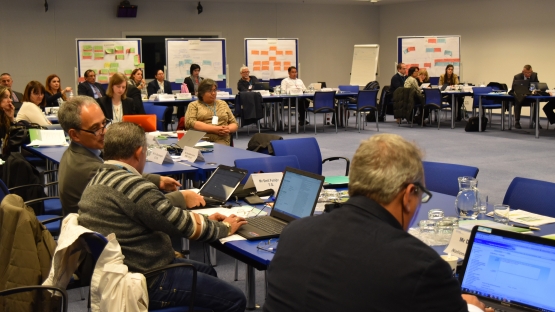In January 2018, the IAEA initiated the implementation of the technical cooperation (TC) programme’s 2018-2019 programme. Upon payment of National Participation Costs, 579 new national, regional, and interregional TC projects are scheduled to be delivered through human resource capacity building activities and procurement of equipment and services.
Over the course of this cycle, 136 Member States and territories—including 37 Least Developed Countries and 16 Small Island Developing States—will participate in national TC projects designed specifically to address their development needs and priorities through the use of nuclear technology.
Delivery of the 579 new projects will occur in parallel with 228 ongoing projects, making important contributions in many areas:
- In human health, the TC programme supports the establishment of cancer services, diagnostic capacity, and nutritional interventions.
- In food and agriculture, the IAEA helps Member States and Territories with pest control, animal husbandry, and the development of stronger, more resilient crop varieties.
- Water and environmental studies rely on IAEA-provided nuclear technologies to collect data for natural resource management.
- The TC programme supports radiation technology and industrial applications including non-destructive testing, irradiation, and the preservation of cultural heritage.
- The IAEA offers a range of support options to help those Member States and Territories who have decided to pursue nuclear power, and also supports Member States with energy planning.
- Safety and security are key TC programme principles, with projects designed to establish and strengthen national regulatory infrastructures and to ensure the safe and secure use of nuclear technology.
- Finally, the IAEA provides education and training to build and maintain national expertise, train young professionals, and preserve institutional memory.
All TC projects must meet the TC central criterion as well as predefined TC quality criteria. A project meets the TC central criterion if it addresses an area of real need in which there is a national programme enjoying strong government commitment and support, and where nuclear techniques can play a fundamental role in the success of the project. The programme’s quality criteria are relevance, effectiveness, national ownership and commitment, efficiency, and sustainability.
Upstream planning and approval of each TC programme cycle usually takes two years, with projects then implemented over two to five years. Throughout every project, counterparts in IAEA Member States provide annual reports about implementation, with IAEA officers providing feedback and addressing any issues that may affect project outcomes. Other monitoring tools include field monitoring methodology, self-evaluation, and outcome monitoring. Regular visits by Programme Management Officers to their assigned Member States provide additional direct review on project progress.


